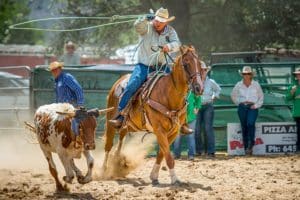Arctic Cold Dangerous for Livestock
- Topics: Article, Body Condition, Horse Care, Nutrition, Seasonal Care, Winter Care
Kentucky is in the throes of an early season arctic blast that could cause problems for livestock operations.
A blast of arctic air recently filtered into the lower Ohio Valley, resulting in highs only in the 20s for most Kentucky locations. These temperatures combined with gusty winds causes an extended period of livestock cold stress in the danger and emergency categories. Livestock producers should take precautions and try to understand how these conditions could impact their animals.
Low ambient temperatures can increase horses’ energy requirements as they compensate to maintain core body temperature. Horses might need additional food, especially if they are kept outside, said Laurie Lawrence, PhD, University of Kentucky College of Agriculture equine researcher and professor.
“Because a large change in the grain portion of the diet can increase the risk of digestive upset, horse owners should also focus first on increasing the amount and/or quality of the hay that is used,” she said. “In general, horses will obtain more calories from alfalfa or alfalfa-grass mix hay than from plain grass hay. If horses have already reached maximum hay consumption, then an increase in grain can be implemented. However, all changes to grain intake should be made gradually
Create a free account with TheHorse.com to view this content.
TheHorse.com is home to thousands of free articles about horse health care. In order to access some of our exclusive free content, you must be signed into TheHorse.com.
Start your free account today!
Already have an account?
and continue reading.
Related Articles
Stay on top of the most recent Horse Health news with

















